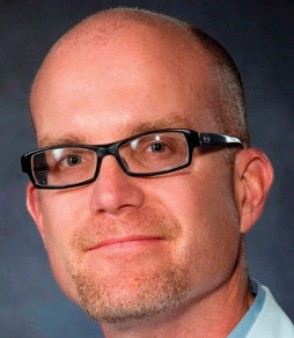With the recent death of Dr. Jack Kevorkian, it’s a good time to review why physician-assisted suicide is an idea that should be laid to rest as well.
Here’s the scenario: Mrs. Johnson is back in exam room 3. She has fibromyalgia and is miserable, but it’s hard to say if she’s any more miserable than Dr. Richards.
Dr. Richards has tried everything — exercise therapy, counseling, antidepressants, acupuncture. Nothing’s working. Dr. Richards is a good doctor and a decent human being, but the last thing he wants to do today is hear Mrs. Johnson’s litany of pain, fatigue and depression, and he certainly does not want to review her recent Internet research on new fibromyalgia cures, some of which involve Tibetan yak extract.
Despite all of Dr. Richards’ best intentions, he would like Mrs. Johnson to go somewhere else, to maybe just disappear, maybe not die, exactly, but then it strikes him — a dead Mrs. Johnson would be a whole lot easier to take care of than a live Mrs. Johnson.
And so Dr. Richards slips a brochure into his pocket, a brochure that details the full breadth of services offered by his practice. Chronic disease management, stress testing, mole removal and, by the way, physician-assisted suicide. Later in the week, he might bring a brochure to the nursing home, to the cancer ward. He finds it strangely liberating.
Going to see a physician who practices physician-assisted suicide is like stabling your horse in a glue factory. When two opposing disciplines are brought together under one roof, there is great potential for sticky situations.
These are two opposing disciplines, after all — traditional medicine has nothing to do with physician-assisted suicide, other than a confused and misplaced notion of providing compassion and preserving dignity.
Compassion is not necessarily bringing an end to suffering by bringing an end to life. Compassion involves good palliative care, psychological care, hospice care, spiritual care. Compassion is hard work and involves something a lot more complicated than a handful of sleeping pills or a bottle of helium.
Ending life is easy; sustaining life and providing comfort is the hard work in which we should expect our doctors to be totally and single-mindedly invested.
Here’s another good reason: Physicians are in the business of treating illnesses, not enabling them. The urge to end one’s life often stems from a delusional view of human nature, a view that is manifested in the appeal to “human dignity.” This dignity, in turn, is tied to one’s independence.
As a rule, we should be very cautious about linking dignity to independence, for where does that leave those who are born dependent, or most of us who will inevitably become dependent? To buy the concept that a dignified human life is to be found only in freedom from dependence is to live a life less human, less filled with that which makes us most human — the connection to and yes, reliance upon, other humans. For to be human is to be capable of great beauty and great ugliness, of great deeds and great needs.
To imagine that we can divorce one from the other is simply delusional. For many of us, after all, it is only in the depths of need that we become who we really are, that our facades crumble, that important words are spoken, pardon is sought and love takes root. When a physician helps people die out of their fear of dependence, this feeds into a view of humanity that is out of touch with the reality, beauty and dignity of being human.
There is no doubt that the concept of physician-assisted suicide will outlive Jack Kevorkian, but physicians should refuse to engage in this practice that is no less enabling than writing narcotic prescriptions for a junkie or buying cigarettes for a smoker.
Physicians have no business in the physician-assisted suicide business. May it — and you — rest in peace, Dr. Kevorkian.
 Dr. Jim Wright is an assistant professor of medicine in the Department of Internal Medicine at VCU Medical Center. He recently completed a Master of Arts in theological studies from Union Presbyterian Seminary. He can be reached at jwright@mcvh-vcu.edu.
Dr. Jim Wright is an assistant professor of medicine in the Department of Internal Medicine at VCU Medical Center. He recently completed a Master of Arts in theological studies from Union Presbyterian Seminary. He can be reached at jwright@mcvh-vcu.edu.
